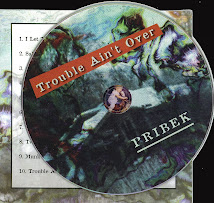Retrieved by Pat Darnell | Nov. 29, 2013 | Bryan TX
[Picture LINK]
“We are hopeful that these suggestions by the advocates are helpful to us to get us back the money from the company which failed to pay even after the stipulated period,” said Mupidathi, an 18 year old girl who was cheated of nearly `50,000 after working for a period of 3 years in a cotton mill in Tirupattur.EXCERPT | " ... These girls work in a camp based setting where they are not allowed to go anywhere. They are made to work for more than 12 hours a day; some are sexually harassed, not paid even after end of the agreement. Almost 90 per cent of the workers employed in these industries are bonded laborers under Apprentice act. Legally we have not been able to do much things as the industries have strong political connections,” said Joseph Victor Raj, State Convener, CACL – TN and PY.
To address this issue legally and ensure protection of female children, many advocates from Chennai High court were invited to present their suggestions and ideas that could prevent such exploitation in future. (©2013 The New Indian Express. November 23, 2013 in Chennai. LINK) ... "
I Tried to See Where My T-Shirt Was Made, and the Factory Sent Thugs After Me | Mother Jones: "Indeed, some Western companies have taken measures to discourage their suppliers from using sumangali labor. Levi Strauss and Co. provides financial support to SAVE, while Gap helped establish the Tirupur Stakeholders Forum, which sets detailed ethical guidelines for factories. More than 80 companies, including Gap, H and M, and Walmart, have joined an industry group called the Ethical Trading Initiative, ETI, which works with NGOs, Non-governmental Organizations, to educate workers about recruiting schemes and is trying to reduce the sumangali contract terms from three years to six months. But Peter McAllister, the director of ETI, would not speak specifically about any of the Indian companies whose factories I investigated, nor their Western buyers, because the group is concerned about the delicate relationship it has with the companies." (DANA LIEBELSON. Mother Jones. Nov. 29, 2013. LINK)
'via Blog this'
If you, dear reader, are looking for a time and place of origin for this batch of acronyms, we could offer this: "... The Department for International Development, DFID, is a United Kingdom government department with a Cabinet Minister in charge. It was separated from the Foreign and Commonwealth Office in 1997. The goal of the department is "to promote sustainable development and eliminate world poverty (y ikki peed ya. LINK) ... "
In 2007 this report was made:
CONCLUSION
Somehow the story about indentured slavery of sumangali girls is getting out, but shameless fabric mills just get better at hiding their "internationally" illegal labor practices. As is the case for so many Transnational Manufacturing schemes, different stages of the fabric process are compartmentalized. "Just how bad is it?"... no one seems to be on top of this flesh empire who will speak about it. If you try to talk in person with would be spokespersons about the status of workers in fabric industries, you are shunned and threatened. It is quite difficult to find one whistle-blower in the whole supply chain of fabric manufacturing.
______________________Reference
http://www.motherjones.com/politics/2013/11/india-garment-factories-sumangali?page=2
http://m.newindianexpress.com/chennai/72564
http://www.motherjones.com/environment/2012/03/walmart-china-sweatshops-t-shirt
http://www.motherjones.com/photoessays/2011/08/jeans-sandblast-bangladesh/01
http://www.motherjones.com/environment/2012/03/walmart-china-sweatshops-t-shirt
http://www.motherjones.com/environment/2012/08/skinny-jeans-environmental-impact
http://www.motherjones.com/politics/2008/11/o-say-can-you-buy
http://www.ethicaltrade.org/
http://en.wikipedia.org/wiki/Ethical_Trading_Initiative
http://www1.umn.edu/humanrts/links/eticode.html
http://www.ethicaltrade.org/sites/default/files/resources/BASECODE%20POSTER%20ENG%20India%20WEB.pdf
http://en.wikipedia.org/wiki/Department_for_International_Development
http://inef.uni-due.de/page/documents/Report91.pdf









No comments:
Post a Comment